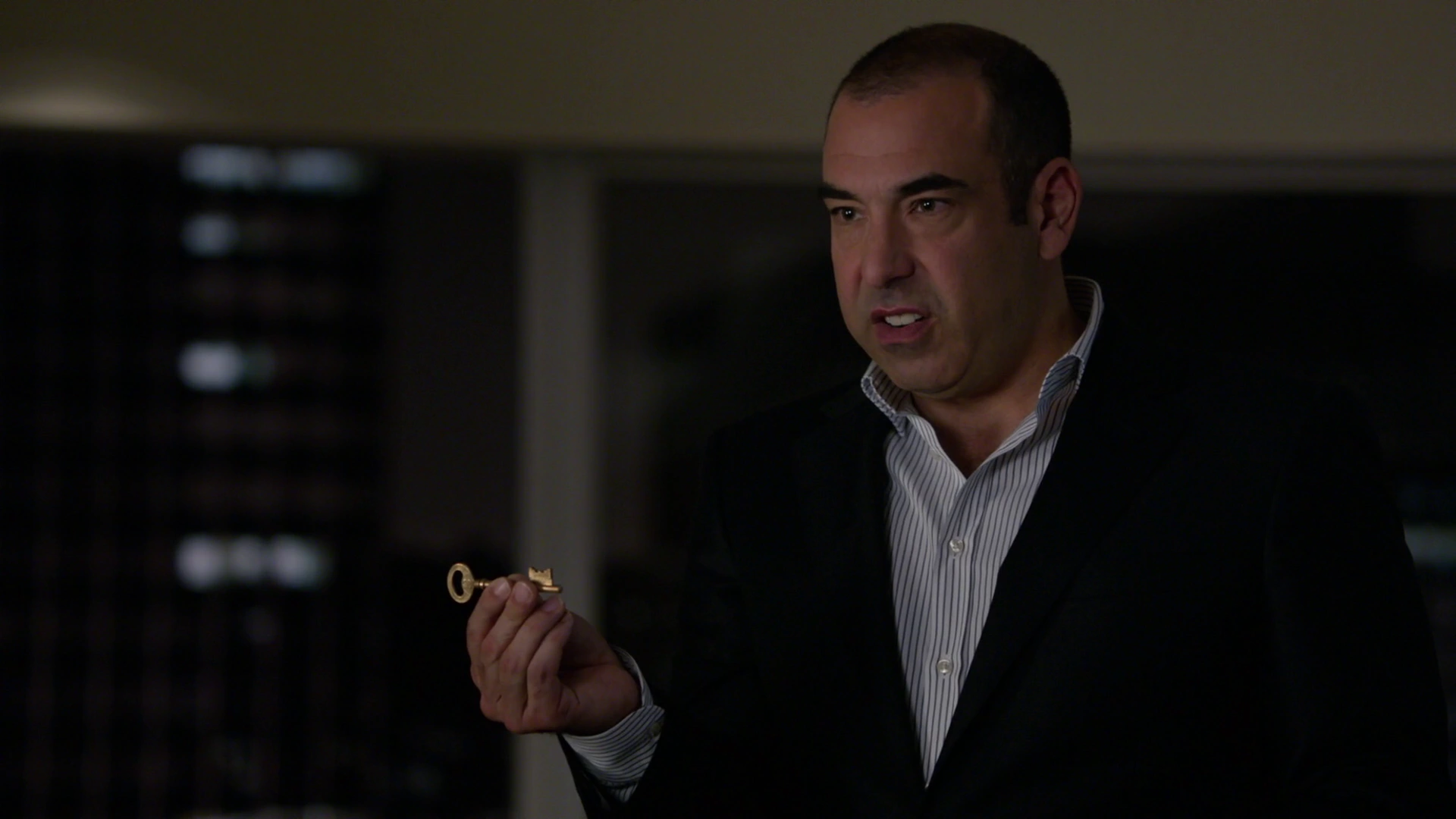In the landscape of television dramas, few episodes have the power to alter the very essence of a show. For the hit legal drama ‘Suits’, that episode was Season 4’s “This Is Rome”. With a blend of high-stakes drama and intricate character development, this episode not only shifted power dynamics within Pearson Specter but also introduced a darker, more introspective tone to the series.

A Darker Shade of Legal Drama
Until “This Is Rome“, ‘Suits’ balanced its legal wrangling with light-hearted banter and a touch of romance, setting it apart in a genre often criticized for its formulaic approach. However, the discovery of Mike Ross’s secret by Louis Litt, a character previously seen as the show’s comic relief, brought unforeseen depth to the narrative. Louis’s confrontation and subsequent blackmail to secure his name on the door marked a departure from the show’s earlier tone, steering it towards uncharted territories of moral ambiguity and internal conflict.
The impact of this revelation was far-reaching. The camaraderie once taken for granted was now under scrutiny, with alliances tested and loyalties questioned. The episode underscored the vulnerability of each character, peeling back layers to reveal the complexity of their motivations and desires. This narrative pivot not only enriched the show’s character arcs but also set a precedent for more nuanced storytelling in legal dramas.

Power Struggles and Personal Growth
The immediate aftermath saw Louis Litt leveraging his newfound knowledge to regain his standing within the firm, fundamentally altering the show’s power dynamics. This shift was not merely a plot device but a catalyst for character evolution. Harvey Specter, known for his unflappable demeanor, was pushed to his limits, struggling with panic attacks and isolation. Meanwhile, Jessica Pearson, the matriarch of Pearson Specter, found her authority challenged, leading to introspection about her role and the decisions that had defined her career.
The revelation of Mike’s secret and its fallout brought the characters closer, transforming the firm from a mere workplace into a tight-knit family. This unity was a silver lining, providing a foundation for some of the series’ most compelling storylines, from courtroom battles to personal vendettas. It also paved the way for Jessica’s eventual departure, a move that reshaped the series’ landscape and teased the potential for new beginnings.
suits 4.10 “this is rome” • august 20, 2014
“oh no.”
“‘oh no’ what?” pic.twitter.com/gkrlOm1CC4— emma saw taylor (@paulsenweltons) August 20, 2022
Suits: Legacy and Influence
The episode did not just change ‘Suits’; it influenced the trajectory of legal dramas as a whole. By daring to disrupt its own status quo, the episode demonstrated the potential for character-driven narratives within a genre often constrained by procedural elements. The characters of ‘Suits’, particularly Louis Litt, emerged as more than just legal eagles; they became embodiments of ambition, loyalty, and redemption.
The episode’s legacy extends beyond its immediate plot implications. It served as a reminder of the potential within television dramas to challenge, entertain, and provoke thought through the lens of fictional legal battles and ethical dilemmas. As ‘Suits’ continued to evolve, “This Is Rome” remained a benchmark for storytelling excellence, a testament to the show’s enduring appeal and its ability to captivate audiences with its blend of legal intrigue and human drama.

In reflecting on the episode’s significance, it’s clear that “This Is Rome” was more than just a turning point for ‘Suits’; it was a defining moment that showcased the power of television to transform and transcend its own conventions. As fans look back on the series, this episode stands as a pivotal chapter in the ‘Suits’ saga, marking the moment when a popular legal drama dared to delve deeper, challenging both its characters and its audience to embrace the complexities of the human condition.










